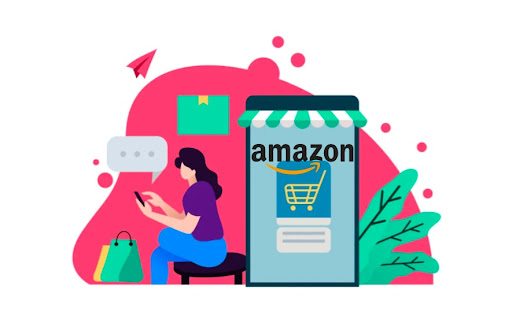How To Get Approval To Sell Gated Products On Amazon

Amazon is one of the most popular online marketplaces in the world, with millions of products available for purchase. However, not all products are created equal, and some require additional permissions to sell. These products are known as gated products, and they require approval from Amazon before they can be listed. In this article, we’ll explore what gated products are, how to get approval to sell them, and some of the advantages and disadvantages of selling gated products on Amazon.
What are gated products?
Gated products are products that require approval from Amazon before they can be listed for sale. The approval process is designed to ensure that sellers are meeting certain standards and that the products are genuine and of high quality. There are several reasons why a product might be gated, including safety concerns, intellectual property issues, and limited availability.
Some examples of gated products include:
- Dietary supplements
- Automotive and power sports parts and accessories
- Luxury beauty products
- Branded apparel and accessories
- Electronics and accessories
- Toys and games
- Jewelry and watches
- Collectible coins
How to get approval to sell gated products:
If you’re interested in selling gated products on Amazon, the first step is to apply for approval. The process can be time-consuming and requires you to provide detailed information about your business, including your business name, address, and tax ID number. You’ll also need to provide information about the products you want to sell, including the brand, model number, and UPC/EAN/ISBN.
To apply for approval, follow these steps:
- Log in to your Amazon Seller Central account.
- Click on the “Inventory” tab and select “Add a Product.”
- Enter the product’s UPC/EAN/ISBN and click “Search.”
- If the product is gated, you’ll see a message indicating that approval is required. Click on the “Request Approval” button.
- Follow the prompts to complete the application. You may be asked to provide additional information or documentation, such as a copy of your business license or a letter of authorization from the brand owner.
Once you’ve submitted your application, it may take several days or even weeks for Amazon to review it. If your application is approved, you’ll be able to list the product for sale. If it’s rejected, you’ll receive an explanation for the rejection and may be given the opportunity to provide additional information or appeal the decision.
I recommend that you read SellerApp’s Amazon restricted products blog to know how to get brand approval on amazon
Advantages of selling gated products on Amazon:
Despite the extra steps required to sell gated products on Amazon, there are several advantages to doing so. In this article, we’ll explore some of the key advantages of selling gated products on Amazon.
Less Competition
One of the biggest advantages of selling gated products on Amazon is that there is typically less competition than there is for ungated products. This is because gated products require approval, which means that there are fewer sellers offering them for sale.
This reduced competition can make it easier for sellers to rank higher in Amazon’s search results, which can lead to more sales. It also means that sellers may be able to charge higher prices for gated products, as there are fewer sellers to compete with.
Higher Profit Margins
Another advantage of selling gated products on Amazon is that they often have higher profit margins than ungated products. This is because there is less competition, and the products are often in high demand.
For example, if you’re selling luxury beauty products, you may be able to charge a premium price for them, which can lead to higher profits. Additionally, because there are fewer sellers offering gated products, you may be able to negotiate better pricing from your suppliers, which can also increase your profit margins.
Exclusivity
Selling gated products on Amazon can give your business an air of exclusivity and prestige. This can help you stand out from other sellers and build a loyal customer base.
Customers may be willing to pay more for exclusive products, and they may be more likely to return to your store in the future if they feel that they are getting something special from your business.
Brand Protection
Many gated products are protected by trademarks and other intellectual property rights. By selling gated products, you can help protect the brand owner’s rights and avoid potential legal issues.
For example, if you’re selling branded apparel and accessories, you’ll need to ensure that you have the necessary permissions to use the brand’s logos and trademarks. This can help you avoid legal issues and protect your business in the long run.
Improved Product Quality
Because gated products require approval from Amazon, sellers must meet certain standards when selling these products. This can help improve the overall quality of the products being sold on Amazon, which can lead to a better customer experience.
For example, if you’re selling dietary supplements, you’ll need to ensure that your products meet FDA regulations and are safe for consumption. This can give customers peace of mind and help you build a positive reputation as a seller of high-quality products.
Access to New Markets
Selling gated products on Amazon can also give you access to new markets that you may not have been able to reach otherwise. For example, if you’re selling collectible coins, you may be able to reach a global audience of collectors through Amazon’s international marketplaces.
This can help you expand your business and increase your sales, which can lead to higher profits over time.
Disadvantages of selling gated products on Amazon:
Approval process
One of the biggest disadvantages of selling gated products on Amazon is the approval process. The process can be lengthy and complicated, requiring sellers to provide detailed information about their business and the products they want to sell. Amazon has strict requirements for gating products, and sellers must meet these requirements to be approved.
To make the approval process smoother, sellers should be prepared to provide all the necessary documentation, including business licenses, tax IDs, and product information. It’s important to ensure that all the information provided is accurate and up-to-date, as any discrepancies could result in rejection.
Limited availability
Another disadvantage of selling gated products on Amazon is limited availability. Gated products are often in high demand, which can make it difficult for sellers to maintain consistent inventory levels. This can result in lost sales and lower profits, as buyers may look elsewhere if the product is out of stock.
To mitigate this risk, sellers should monitor their inventory levels closely and restock as needed. They should also consider diversifying their product offerings to include both gated and ungated products, to ensure a more stable revenue stream.
Increased risk
Selling gated products on Amazon can also increase the risk of fraud and scams. Fraudsters may target high-value gated products, attempting to steal them or using fake or stolen credit cards to make purchases. This can result in chargebacks, lost revenue, and potential legal issues.
To prevent fraud, sellers should implement strict security measures, such as two-factor authentication and fraud detection software. They should also closely monitor transactions and look for any signs of suspicious activity.
Increased competition
While gated products may have less competition than ungated products, the competition among sellers of gated products can be fierce. This is particularly true for popular products such as luxury beauty items or collectible coins.
To stand out in a crowded market, sellers should focus on building their brand and reputation. They can do this by providing exceptional customer service, offering competitive pricing, and creating a strong brand identity through advertising and marketing.
Costs
Finally, selling gated products on Amazon can be expensive. In addition to the costs associated with obtaining approval and maintaining inventory, sellers must also pay Amazon fees and commissions on each sale. These fees can eat into profits and make it difficult to maintain a sustainable business.
To manage costs, sellers should carefully track their expenses and revenue, and adjust their pricing and inventory levels accordingly. They should also consider using third-party fulfillment services to save on storage and shipping costs.
Conclusion:
Gated products can be a profitable niche for sellers who are willing to go through the approval process and meet Amazon’s requirements. While there are some disadvantages to selling gated products, such as the time-consuming approval process and limited availability, the advantages, such as less competition and higher profit margins, can make it a worthwhile endeavor for many sellers.
If you’re interested in selling gated products on Amazon, be sure to do your research and understand the approval process before you begin. And remember, even if your application is rejected, there are still plenty of other products available for sale on Amazon that don’t require approval. With the right strategy and a little bit of hard work, you can build a successful business on Amazon, whether you’re selling gated products or not.





